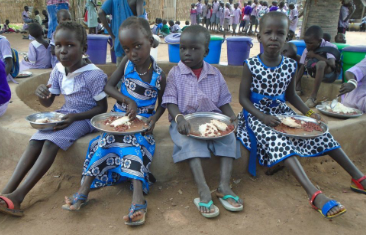By Kei Emmanuel Duku
The Food and Agriculture Organization of the United Nations (FAO) and the European Union (EU) have launched a significant €20 million initiative targeting vulnerable populations in Africa and Latin America, with South Sudan named as one of the key beneficiaries. The project aims to dramatically increase access to safe, nutritious aquatic foods while simultaneously injecting life into local economies through cutting-edge innovations in aquatic value chains.
The five-year program, titled “New Aquatic Food Value Chains for Sustainable Healthy Diets in Fragile Contexts (NAVAC)”, will run from 2025 to 2030. It has secured its primary backing from a €20 million contribution from the European Union, supplemented by an initial $500,000 from FAO’s Technical Cooperation Program.
Apart from South Sudan, NAVAC will also operate in Chad, Colombia, Guinea-Bissau, and Mauritania, focusing its efforts on communities most susceptible to poor nutrition. In a press released by FAO yesterday, the project’s focus on “Blue Transformation” innovations.
“The main aim of NAVAC is to expand the supply of sustainable, affordable, safe and nutritious aquatic foods and ensure that it reaches nutritionally vulnerable populations while at the same time providing economic benefits to local communities through Blue Transformation innovations in aquatic food value chains,” stated Godfrey Magwenzi, Deputy Director-General of FAO.
Aquatic foods are widely recognized as a crucial source of high-quality protein and essential micronutrients vital for fighting malnutrition, especially in high-risk groups like children and pregnant or lactating women. These foods also play a role in lowering the risk of non-communicable diseases.
Despite this nutritional potential, the resources are often overlooked in national food security and nutrition strategies.
NAVAC is designed to align with FAO’s “Four Betters” framework Better Production, Better Nutrition, a Better Environment, and a Better Life while supporting the organization’s wider Blue Transformation roadmap to make aquatic food systems more efficient and sustainable.
Annette Schneegans, Minister Counsellor and Deputy Permanent Representative of the European Union to FAO, emphasized the comprehensive approach. “NAVAC promotes innovative and integrated approaches to value chain development, from ‘net to plate,’ ensuring that interventions advance food security and nutrition outcomes, strengthen livelihoods and enhance environmental sustainability,” she said, adding that the initiative reflects the EU’s commitment to its Global Gateway strategy.
FAO will implement NAVAC in collaboration with the Technical University of Denmark. The initial phase will involve a detailed analysis of aquatic food value chains in the participating countries, including South Sudan, to pinpoint areas for development and knowledge gaps.
This groundwork will inform the creation of strategies aimed at substantially increasing the supply of healthy aquatic food to those in greatest need.
The partners will work to develop new and upgrade existing aquatic food value chains to combat acute and chronic malnutrition. This includes exploring innovative biotechnologies and product development processes to ensure nutritious aquatic foods reach vulnerable populations more effectively.
The project is building on lessons learned from the successful FISH4ACP initiative, which previously focused on boosting productivity and sustainability in African, Caribbean, and Pacific fisheries and aquaculture.



